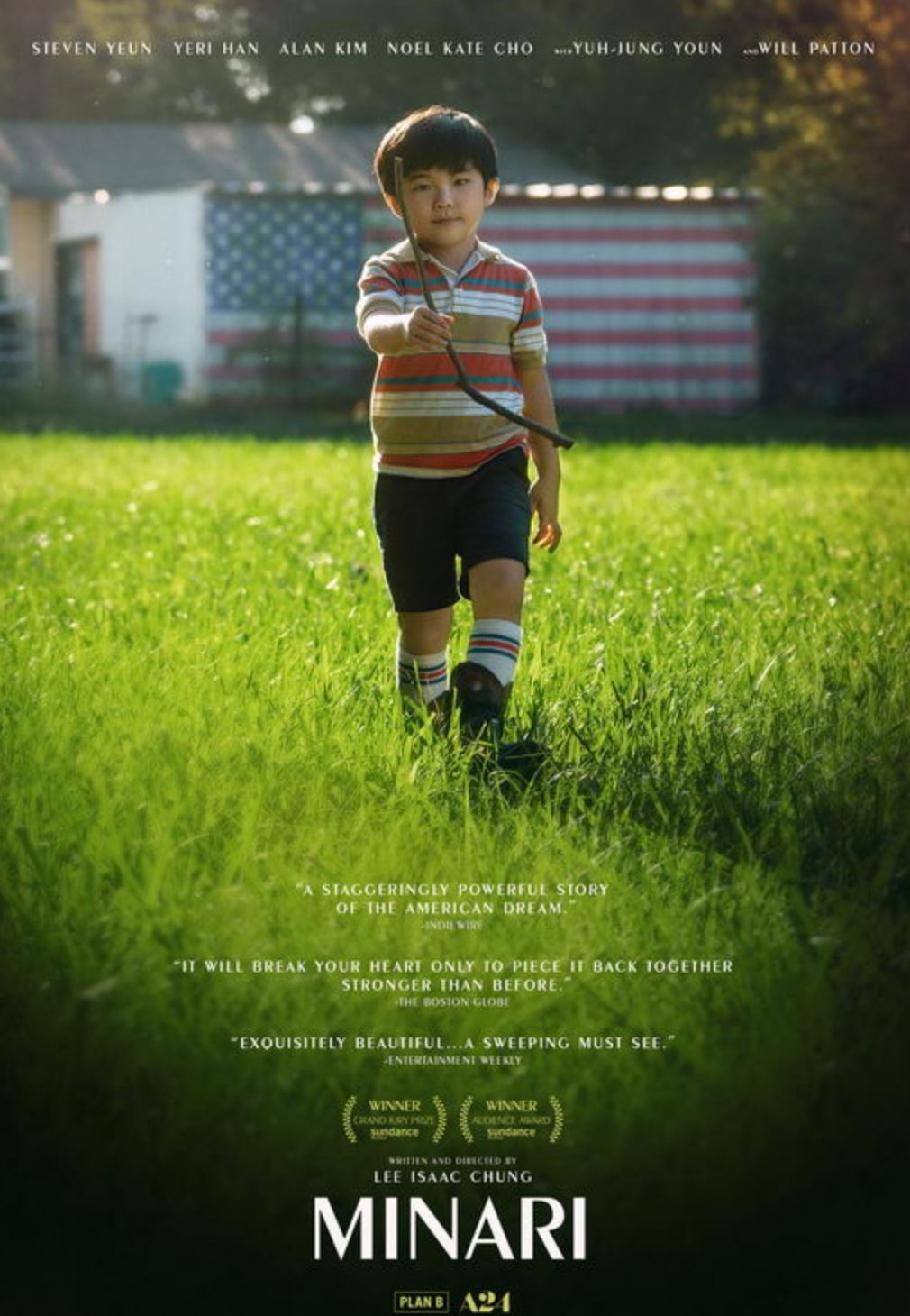Minari: Portrait of an American Family



Lee Isaac Chung’s delicate family drama, Minari, follows a Korean-American family—immigrant parents, American-born children—as they attempt to find their slice of the American dream on a farm in rural Arkansas. Jacob Yi (Steven Yeun) dreams of having a “garden” of his own and moves his family to a 50-acre plot of land in the deep South. His wife, Monica (Yeri Han), is under the impression that having a garden meant a few acres where Jacob could grow vegetables for their kitchen table and is appalled to find the family so far flung from city services, especially a hospital. Their son, David (Alan Kim), has a heart murmur, and Monica frets the remote farm will endanger him. Daughter Anne (Noel Kate Cho) is never asked her opinion or preference for anything and goes along with her family with same kind of long-suffering, forced patience Monica displays toward Jacob.
Things are not super great in the Yi family. Besides the stress of the move and David’s heart condition, the home Jacob purchased is a doublewide trailer on cinder blocks in the middle of a wild field. Monica is visibly shocked by the house, and at first refuses to unpack personal belongings, believing they will not stay long. But Jacob is determined, and soon he is plowing a field of Korean produce, intending to supply Korean grocers in Dallas. He and Monica also work at a local chicken farm, sexing chicks. Two jobs, marital stress, an attempt at farming, recalcitrant children… is there a more American story? Most of Minari is spoken in Korean, but countless American families speak a second language at home, so the Yis are hardly an exception in that regard. They are the archetypical family dreaming the American dream, moving to America to pursue a better life, and Jacob is not content to work for others in a factory forever. He wants to work the land, to control his own destiny, and succeed as an independent business owner.
As a portrait of a family, Minari is both unrelentingly unromantic, and deeply compassionate. Jacob and Monica are a tangibly real couple in the ways they fall apart and come together. Jacob is not insensible to Monica’s worry, but he is so determined to see his farming dream to fruition he overrides any objection to his plans. This forces Monica into a perpetual state of worry and stress, with no support system around her. Rural Arkansas is not a bastion of Korean-American community, so they have no church to go to, nor any real friends for Monica to make. Monica half-heartedly attempts to integrate into a local church group, but it’s clear this is not the community she seeks. (Casual racism from children at the local church is treated with patient kindness, a hopeful touch from Chung suggesting that these attitudes can be interrupted, even improved.) Increasingly isolated, Monica’s mother eventually comes from Korea to live with the Yis. Grandma (Youn Yuh-jung) is not a “real grandma”, though, as David constantly points out. She doesn’t cook and she swears, and David never misses an opportunity to belittle her. David is kind of a little sh-t, and one of the most authentically childish movie children in recent memory.
Minari does not offer pat resolutions or simple homilies about the importance of family. It does, however, have a deep well of compassion for the Yis, and the countless immigrant families they represent. This is a film where anything that can go wrong, does go wrong, and yet it ends with an uplifting feeling of hope. Chung is not blind to the fact that the American dream rarely works out, or the hurdles the Yis face, but neither does he give up on Jacob and Monica. People can choose to stay, they can choose to try again, to continue forward in the face of loss. The Yis, it seems, are not done trying. Minari is a sensitive film with a crass sense of humor, and a family drama that does not romanticize the concept. It is a quintessentially American story about a family trying to find their place in a country that sells an image of bountiful promise to cover an ugly face of cruelty and greed. Jacob’s American dream is neither achieved nor dashed, and Monica has not fully found her place, but in the end, Minari suggests that it is the pursuit of these things that truly fulfills us, and it is the pursuit of these things that unites us.
Minari will be in theaters on February 12, and will be on demand from February 26. It will also be available at home through A24’s virtual cinema from February 12 through February 25. To watch through A24’s virtual cinema, click here.
